I have a stored procedure that contains dynamic select. Something like this:
ALTER PROCEDURE [dbo].[usp_GetTestRecords]
--@p1 int = 0,
--@p2 int = 0
@groupId nvarchar(10) = 0
AS
BEGIN
SET NOCOUNT ON;
DECLARE @query NVARCHAR(max)
SET @query = 'SELECT * FROM CUSTOMERS WHERE Id = ' + @groupId
/* This actually contains a dynamic pivot select statement */
EXECUTE(@query);
END
In SSMS the stored procedure runs fine and shows result set.
In C# using Entity Framework it shows returning an int instead of IEnumerable?
private void LoadTestRecords()
{
TestRecordsDBEntities dataContext = new TestRecordsDBEntities();
string id = ddlGroupId.SelectedValue;
List<TestRecord> list = dataContext.usp_GetTestRecords(id); //This part doesn't work returns int
GridView1.DataSource = list;
}
Generated function for usp_GetTestRecords
public virtual int usp_GetTestRecords(string groupId)
{
var groupIdParameter = groupId != null ?
new ObjectParameter("groupId", groupId) :
new ObjectParameter("groupId", typeof(string));
return ((IObjectContextAdapter)this).ObjectContext.ExecuteFunction("usp_GetTestRecords", groupIdParameter);
}
